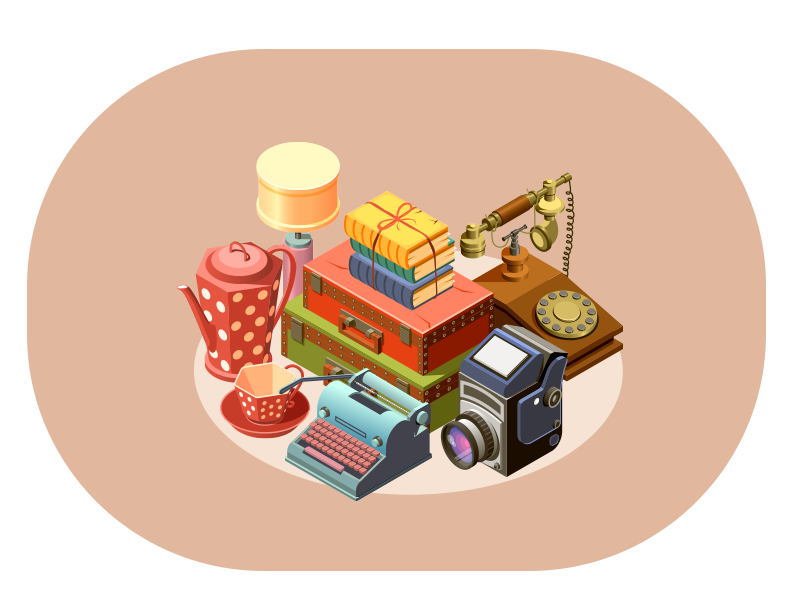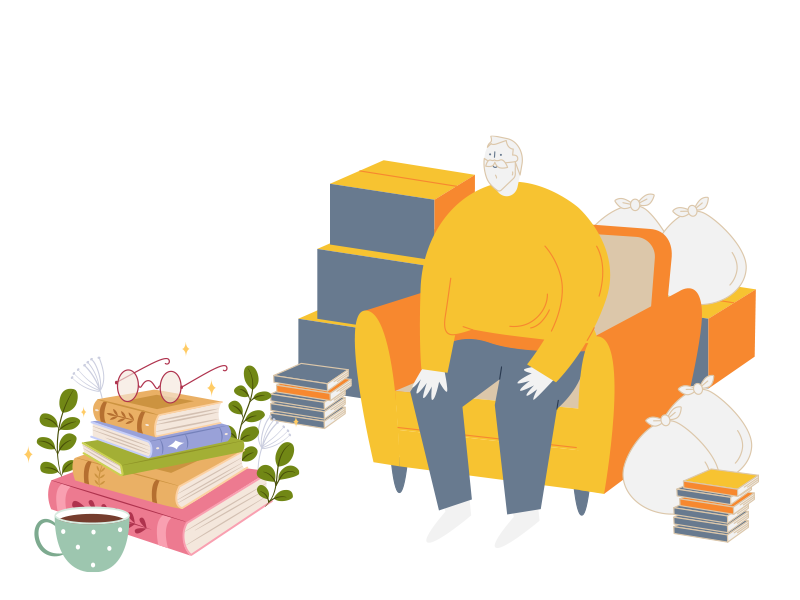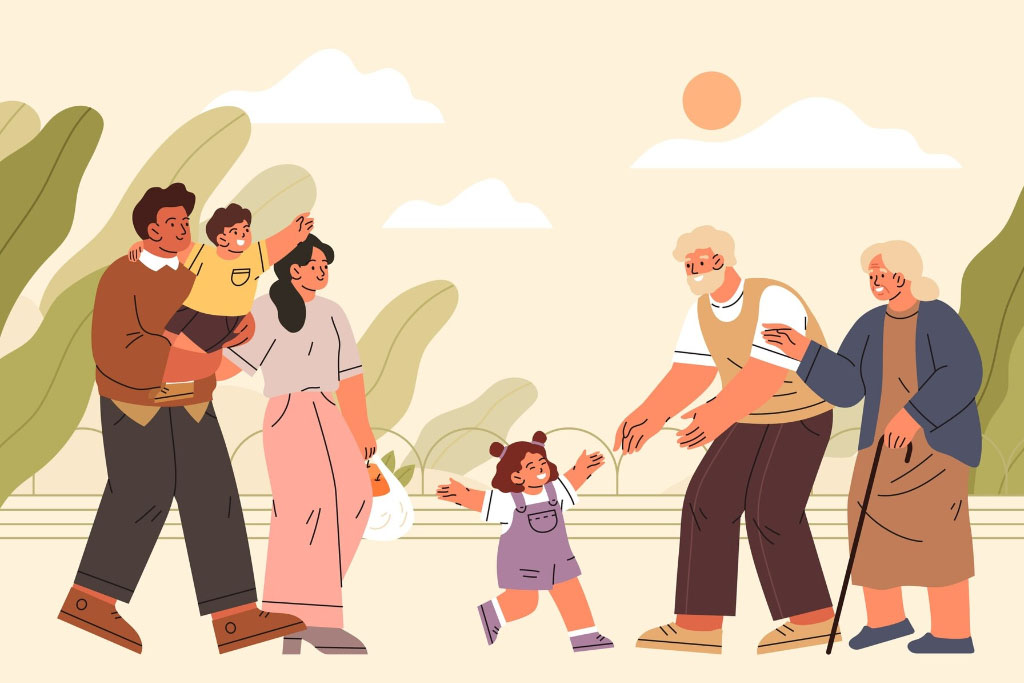Hoarding increased during the pandemic
So many things in our lives have been negatively impacted by the COVID19 pandemic. As one government after another locked downed citizens and demanded social distancing, they seemingly did so without considering the possibility of unintended consequences. It’s been more than two years since the beginning of the pandemic, and some of those unintended consequences are coming to light.

One of the aforementioned unintended consequences has been an increase in hoarding and the number of reported hoarders. For the unfortunate souls who were already dealing with a hoarding disorder, the pandemic restrictions just seemed to make things worse. The pandemic also gave rise to new hoarders who took to “panic buying” out of fear for their lives and the lives of loved ones.
We would like to use the opportunity to discuss the psychology of hoarding and why people hoard. We would also like to address the question: “Are people hoarding again or experiencing deeper issues related to their hoarding disorders.”
About Hoarding
Prior to the pandemic, the term “hoarding” was barely mentioned outside of circles of family and friends who knew hoarders. All of that seemed to change when communities started experiencing shortages of toilet paper and sanitizers of all things. Are the people who bought a year’s supply of toilet paper or sanitizer to be classified as hoarders? Probably not, but what this behavior has done is bring the concept of hoarding into public focus.
Before discussing anything about people hoarding again or more often, it seems prudent to provide some specific and useful information about hoarding disorder.
What is hoarding? Hoarding disorder (HD) is a chronic psychiatric illness that affects more than 13 million American adults. Hoarding tendencies can start during adolescence but will usually not develop into a hoarding disorder until adulthood. The symptoms of hoarding include, but are not limited to:
- Excessively acquiring items beyond what is reasonably needed
- Inability to discard things
- Home filled with intrusive clutter
- Disorganized piles or stacks of items (newspapers, magazines, bags, etc.)
- Procrastination and inability to make decisions
The psychology of hoarding is complicated. It usually occurs among people because of a complex set of psychological, biological, and environmental factors. The list of potential causes includes:
- Proximity to a family member with HD
- Traumatic life event: death in family, abuse (physical, emotional, sexual)
- Involvement is a natural disaster or accident
- Presence of psychological issues like depression or anxiety
- Presence of compulsive buying tendencies
- Denial of access to certain things
- Brain damage or other physical issues
Is there a cure for HD? No. Like most compulsive disorders, the best the victim can hope for is to arrest their disorder and keep it at bay by learning coping skills.

How COVID19 Could Have Impacted Hoarders
The demands for lockdowns and social distancing were based on fear of the COVID19 virus spreading and trying to prevent that from happening. Whether the lockdowns and demands for social distancing were of any value will be debated for years. What is becoming clear to almost everyone is people are paying psychological and social prices for what took place.
How the Psychology of Hoarding was Affected By COVID19
During the heart of the pandemic when government dictates were prominent, pretty much every man, woman, and child experienced some form of anxiety, depression, aggravation, or stress. From the above list of hoarding risks or causes, we already know that these types of psychological issues can trigger hoarding disorders. That is very likely to have happened with the COVID19 pandemic.

In this section, we would be remiss to not address the long-term effects of fear. The press was sure to report on and provide images of death during the pandemic. This certainly created fear among a large portion of the population. When people were further told they could avoid the potential effects of the virus, they set out to buy things like masks, soaps, sanitizers, and disinfectants. Not only did the pandemic elicit more hoarding, but it also produced a new target for hoarding.
Even today, people are excessively accumulating the aforementioned items. The hoarding beast has been unlocked by their ongoing fear of the current pandemic and the potential for future pandemics.
The Social Impact of COVID19 on Hoarding

Then there is the social component to all of this. To begin with, the pandemic caused such a sudden and drastic change in how we live our lives. For so many people, it will forever be considered a traumatic life event. This has likely happened because humans are social animals in need of social interaction. Any long-term denying of social interactions beyond immediate family can create feelings of uncertainty and emptiness.
Absent of social interaction and friends, people began over-valuing things more than they did prior to the pandemic. Not only did they start over-valuing things, but they also started to develop an unnatural attachment to certain things. Why? At a time when people were being denied access to so many things in their lives, they began clinging to the things to which they did have access. Any later attempts to separate themselves from these unnatural attachments have shown the potential of causing hoarding problems.
Why Hoarding Increased During the Pandemic
When junk removal companies like Clutter Trucker start getting bombarded with calls for junk and trash removal, that’s evidence that something drastic has changed. What seems to have changed most is the creation of a whole new generation of hoarders born out of fear and the psychological and social impacts brought on by the pandemic.
The number was also likely affected by people who felt they were on the brink of beating their HD but found themselves hoarding again. This was probably caused by their old fears and feelings coming back to life while their coping skills were waning. For a lot of people, that was enough to also bring back hoarding issues and start them hoarding again.
Finally, people who were fighting HD when the pandemic hit probably increased their hoarding, using the pandemic as justification for doing so. They suddenly felt justified to collect things as a safeguard against future lockdowns and shortages.
If you or somebody you know has experienced an increase in hoarding issues, Clutter Trucker is available to help. We can come to your location, remove unwanted junk and trash, a let you restore some kind of order to your home.

About Jennifer Hanzlick
Clutter Trucker is a Denver-based hoarding clean-out company founded by Jennifer Hanzlick. Jennifer leveraged 15 years of corporate experience in to start the company in 2008. Her mission is to help and educate individuals and their loved ones who have hoarding disorder. A featured speaker at Ted X Boulder, Jennifer works directly with community and non-profit organizations to boost public awareness about the condition. To that end, she founded the Colorado Hoarding Task Force in 2015.
 720-982-7856
720-982-7856



